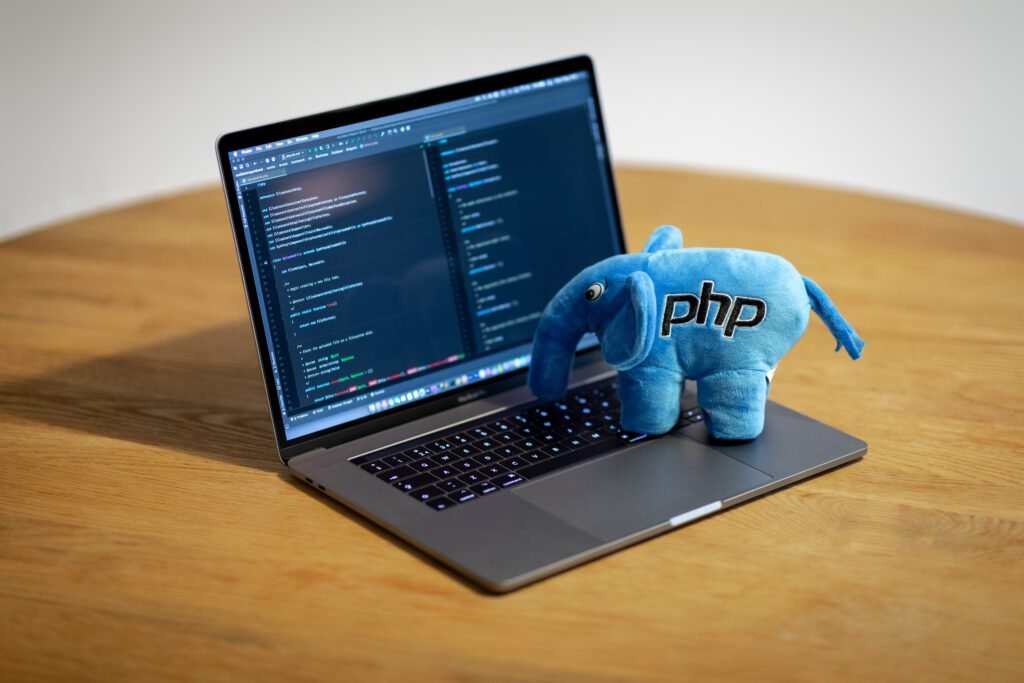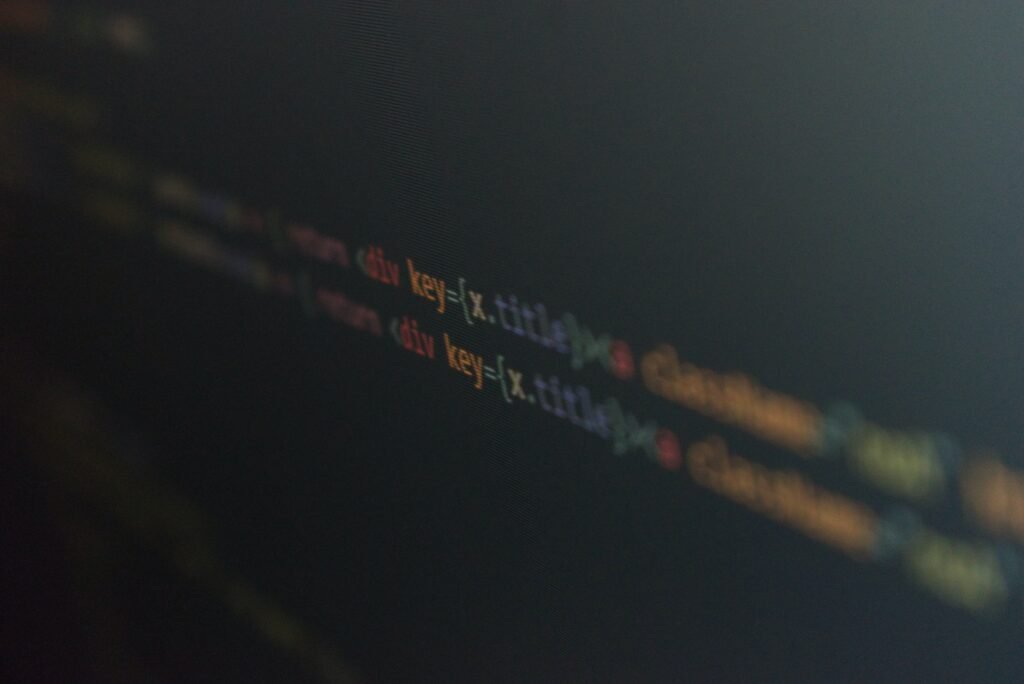Imagine a world where artificial intelligence (AI) not only learns from existing code but also has the power to write its own code. It may sound like a scene from a sci-fi movie, but this concept is becoming a reality. With advancements in machine learning and neural networks, AI is slowly but surely evolving into a powerful programming tool. In this article, we will explore the fascinating question: can AI truly write its own code?

This image is property of images.unsplash.com.
Understanding AI
AI and its capabilities
Artificial Intelligence (AI) refers to the simulation of human intelligence in machines that are capable of performing tasks that would typically require human intelligence. AI systems are designed to analyze data, detect patterns, and make decisions or predictions based on the information provided. These systems can mimic human cognitive abilities such as learning, reasoning, problem-solving, and even natural language processing.
The concept of machine learning
One of the key aspects of AI is machine learning, which involves the development of algorithms that enable machines to learn from and adapt to data. Machine learning algorithms allow AI systems to improve their performance over time without being explicitly programmed for each specific task. By analyzing large amounts of data, AI systems can identify and learn patterns, making them more efficient and accurate in their decision-making processes.
The role of AI in software development
AI has made significant contributions to the field of software development. From automating repetitive tasks to assisting in the creation of complex algorithms, AI has revolutionized the way software is built. By harnessing the power of AI, developers can streamline their processes, increase productivity, and leverage intelligent systems to enhance the overall quality of their code.
AI-Generated Code
Automated code generation
AI-generated code refers to the code that is produced by an AI system without direct human intervention. Through machine learning algorithms, AI systems can analyze existing codebases, programming frameworks, and patterns to generate new code that meets specific requirements. Automated code generation can expedite the development process, especially for repetitive coding tasks.
The process behind AI-generated code
AI-generated code typically follows a process that involves data analysis, pattern recognition, and algorithm generation. Initially, the AI system is trained on a vast amount of existing code, allowing it to understand common programming patterns and syntax. Once trained, the system can analyze the requirements provided and generate code that adheres to the desired functionality or behavior.
Advantages and disadvantages
AI-generated code offers several advantages in software development. It can significantly reduce the time and effort required for routine coding tasks, allowing developers to focus on more critical aspects of their projects. Additionally, AI-generated code can help identify potential bugs or vulnerabilities in the codebase. However, there are also limitations to AI-generated code. AI systems lack true understanding and creativity, which can lead to code that may not be as efficient or optimized as human-written code. Additionally, ethical considerations and the potential for bias in AI-generated code must be carefully addressed.
Challenges and Limitations
The complexity of coding
Coding is a complex task that involves not only the ability to write syntactically correct code but also to understand the problem domain and design efficient algorithms. While AI can automate certain aspects of coding, such as generating boilerplate code, it still struggles with complex tasks that require deep understanding and creativity. Human expertise is often necessary to tackle intricate coding challenges.
Ambiguity and creative problem-solving
Coding often involves dealing with ambiguity and finding creative solutions to complex problems. AI systems, while proficient in pattern recognition and following predefined rules, may struggle when faced with novel or unconventional coding problems. The ability to think critically, adapt, and come up with innovative solutions is an area where human programmers excel.
Ethical concerns in AI-generated code
AI-generated code raises ethical concerns that must be addressed. Bias, both in the training data and the algorithms themselves, can result in discriminatory outcomes or reinforce existing societal prejudices. Additionally, the lack of transparency in how AI systems arrive at their decisions can make it challenging to understand and rectify potential errors or bias in the generated code. Ensuring accountability, fairness, and transparency in AI-generated code is essential to mitigate these concerns.
Benefits of AI-Generated Code
Increased efficiency and productivity
One of the significant benefits of AI-generated code is the potential to increase efficiency and productivity in software development. AI systems can automate repetitive coding tasks, freeing up developers’ time to focus on higher-level design and problem-solving. By reducing manual effort, developers can accelerate the development process, leading to faster delivery of software products.
Potential for error reduction
AI-generated code has the potential to reduce errors commonly made during manual coding. By analyzing vast amounts of existing code and following established programming patterns, AI systems can help identify and fix common coding errors or vulnerabilities. This can result in more robust and secure codebases, minimizing the risk of software failures or security breaches.
Faster adaptation to changing technologies
The field of technology is constantly evolving, with new programming languages, frameworks, and tools emerging regularly. AI-generated code can help developers adapt to these changes more efficiently. AI systems can quickly learn new languages or frameworks and generate code that aligns with the latest coding practices. This enables developers to stay up-to-date with evolving technologies and incorporate them into their projects more rapidly.

This image is property of images.unsplash.com.
Current State of AI in Code Writing
Code completion and auto-suggestions
AI has already made significant advancements in code writing through features like code completion and auto-suggestions. Integrated development environments (IDEs) leverage AI algorithms to provide developers with real-time suggestions and completions for their code. This helps developers write code faster and with fewer errors, as the AI system predicts the context and offers relevant suggestions.
Debugging and optimization assistance
AI-driven tools can assist developers in debugging and optimizing their code. By analyzing the codebase and identifying potential issues or performance bottlenecks, AI systems can suggest improvements or highlight areas for further investigation. This can save developers valuable time and improve the overall quality and efficiency of the software.
AI-driven automated testing
Testing is an integral part of software development, and AI can play a significant role in automating this process. AI systems can generate test cases, simulate various scenarios, and identify potential bugs or vulnerabilities in the code. By automating testing, developers can detect and resolve issues early in the development cycle, leading to more reliable and robust software products.
Implications and Future Possibilities
AI as a tool for developers
The role of AI in code writing is expected to evolve into that of a powerful tool for developers. AI systems can automate repetitive tasks, provide assistance and suggestions, and streamline the development process. However, it is crucial to view AI as a tool that complements human expertise rather than a replacement for human programmers. Collaborating with AI can enhance productivity and enable developers to focus on more complex and creative tasks.
The potential impact on the job market
The integration of AI in code writing processes raises concerns about the impact on the job market for programmers. While AI can automate certain aspects of coding, it is unlikely to replace the need for human programmers entirely. Instead, the role of programmers may shift towards higher-level tasks such as system design, architecture, and creative problem-solving. Consequently, developers will need to adapt and acquire new skills to leverage the potential of AI in their profession.
AI-driven software innovation
The incorporation of AI in the code writing process has the potential to drive software innovation. AI systems can analyze vast amounts of data, learn from existing codebases, and identify patterns that humans may not recognize. By leveraging AI’s capabilities, developers can explore new possibilities, create novel solutions, and push the boundaries of software development. AI-driven software innovation opens up exciting opportunities to solve complex problems and revolutionize various industries.

This image is property of images.unsplash.com.
Ethical considerations
AI accountability and responsibility
As AI starts to play a more significant role in code writing, ensuring accountability and responsibility becomes crucial. Developers and organizations must take responsibility for the outcomes of AI-generated code and implement safeguards to prevent potential harm. Clear guidelines and frameworks for evaluating the ethical implications of AI-generated code should be established to maintain transparency and accountability.
Bias and fairness in AI-generated code
AI systems are only as unbiased as the data they are trained on. AI-generated code can inadvertently reinforce existing biases or discriminate against certain groups if the training data is biased or incomplete. Ensuring fairness and addressing bias in AI-generated code is of utmost importance. Developers should carefully evaluate and monitor the training data and algorithms to minimize bias and ensure fairness in the code generated by AI systems.
Ensuring transparency and human intervention
Transparency in AI-generated code is essential for developers to understand and trust the code produced by AI systems. Developers should have access to the underlying algorithms and be able to comprehend how the AI system arrived at its decisions. Additionally, human intervention is crucial in critically evaluating the AI-generated code, providing oversight, and addressing the limitations and biases that AI may exhibit.
Human-Machine Collaboration
AI-assisted code generation
Human-machine collaboration is a promising approach in code writing. Rather than completely relying on AI-generated code, developers can leverage AI as an assistant to enhance their coding capabilities. AI systems can offer suggestions, identify potential issues, and provide insights, while human developers can bring their creative problem-solving skills, domain knowledge, and understanding of complex requirements to the table.
Leveraging AI for complex tasks
AI can be particularly useful for complex coding tasks that require substantial computational power or involve vast amounts of data analysis. By harnessing AI’s abilities, developers can tackle large-scale optimization problems, pattern recognition, or data-driven algorithm design, which may be challenging or time-consuming to perform manually. AI can expedite and enhance the accuracy of these tasks, allowing developers to focus on higher-level aspects of software development.
Combining human creativity with AI efficiency
A key advantage of combining human creativity with AI efficiency is the ability to tackle both the logical and intuitive aspects of coding. While AI may excel in processing large amounts of data and performing rule-based tasks, human creativity is crucial in designing elegant and innovative solutions. By collaborating with AI, developers can leverage the best of both worlds, resulting in more efficient and creative code writing.
The Future of AI in Code Writing
Advancements in machine learning algorithms
The future of AI in code writing holds exciting possibilities with advancements in machine learning algorithms. As AI algorithms continue to improve, they will become more capable of understanding complex codebases and generating code that aligns with human programming standards. These advancements will enable AI systems to assist developers more effectively and automate increasingly complex coding tasks.
The potential for AI to surpass human coding abilities
While AI is not expected to completely surpass human coding abilities, there is potential for AI to excel in certain aspects of code writing. With advancements in natural language processing and deep learning, AI systems may become highly proficient at analyzing and understanding code in a manner that even human programmers find challenging. This can lead to AI systems generating code that is both efficient and innovative.
The integration of AI into software development processes
In the near future, AI is likely to become an integral part of the software development process. AI-driven tools and systems will be seamlessly integrated into integrated development environments (IDEs), version control systems, and project management tools. Developers will rely on AI for code completion, debugging assistance, and even generating entire code modules. The integration of AI will enable developers to work more efficiently, produce higher-quality code, and adapt to emerging technologies more rapidly.
Conclusion
The transformative power of AI in code writing is undeniable. AI-generated code has the potential to increase efficiency, reduce errors, and accelerate software development. However, it is imperative to strike a balance between automation and human expertise. Developers must be actively involved in the code writing process, addressing ethical concerns, ensuring transparency, and leveraging AI as a tool for enhancing their skills. As the field of AI continues to evolve, it is essential to establish ethical guidelines and frameworks to responsibly harness the potential of AI in code writing. With careful consideration, human-machine collaboration can push the boundaries of software innovation while preserving the value of human creativity in coding.
